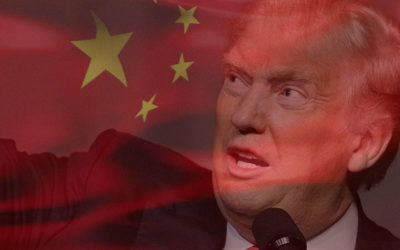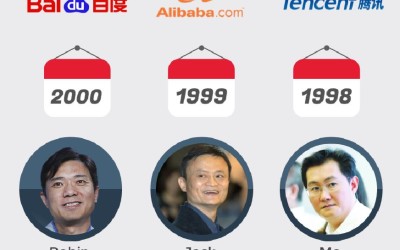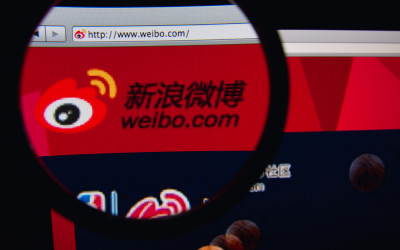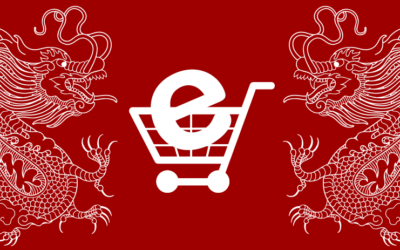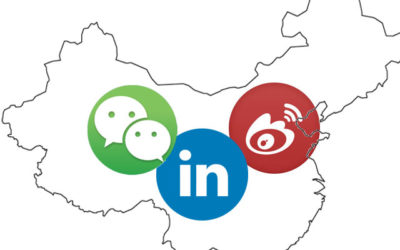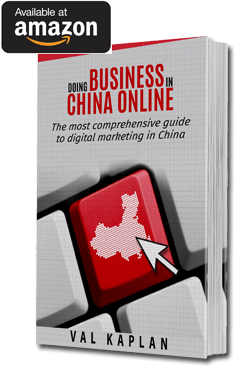Our China Blog
Momo, More Than Just Another Chinese Social Network App
Momo, a popular Chinese mobile social app, that went public in NASDAQ at the end of 2014, has been steadily gaining in popularity. Although it is no rival to WeChat by any measure, it is the third largest fully mobile app after WeChat and QQ.
It has achieved 2.5 percent penetration rate which is no small feat in the crowded app market in China, although it still dwarfs in comparison with WeChat with over 80 percent penetration.
While WeChat and QQ are for connecting with friends, Momo is an app for connecting with strangers based on interests and location. Its closest equivalent in the Western market would be Tinder or Grindr. read more…
China’s Mobile Consumers And The Rise of Chinese M-Commerce
Over half of online sales in China have been done with smartphones making Chinese m-commerce the fastest growing sector of the country’s digital economy.
In China, smartphones are involved in every step of the typical sales funnel – from discovery and research to payment and feedback. As a result, Chinese m-commerce has been undergoing meteoric rise in recent years. read more…
WeChat Usage Stats: Another Killer Year
Just as you thought WeChat usage figures in China can’t get any higher, the most innovative Chinese social network proves otherwise. According to the most recent report released by Tencent, WeChat registered 768 million daily users. In other words, about 60% of the world most populous nation is logged in to WeChat every day.
This represents 35% percent year-on-year growth which no social network of this size has been able to match. Average WeChat usage time stands at 90 minutes – 50% of users use WeChat for at least 1.5 hours every single day. read more…
Fading Popularity of Trump in China: The End of Obsession
After initial fascination with Trump in China his popularity is quickly declining. Here why the love affair has began in the first place and why it is over.
Leading to US election last November, US president elect Donald Trump has been a fairly popular figure in China. According to the most recent poll before the election, 39 per cent of Chinese preferred to see him as the next US President – a surprisingly large percentage given his relentless China bashing on campaign trail.
Infographic on China BAT: Baidu Alibaba Tencent
China BAT is the collective term used to describe three largest software conglomerates: Baidu, Alibaba and Tencent. These three companies today practically run Chinese internet.
Baidu is the Chinese version Google. It is the largest search engine and is, in terms of business interests, as diverse. Alibaba is the world largest ecommerce operator that runs Taobao and Tmall, two main shopping sites in China. Tencent is the company behind WeChat, the most popular mobile based social app, as well as QQ, the messenger service. read more…
Ecommerce with WeChat Shop
Chinese m-commerce has been growing by leaps and bounds in the last couple of years. The competition has further intensified in mid 2014 when WeChat launched its ecommerce option that works within the app. Although Alibaba, with its Taobao and Tmall, still reigns supreme in China ecommerce market, shopping with WeChat has been steadily gaining popularity.
Presently, ecommerce with WeChat can only be setup for verified service accounts which, in turn, requires local business registration. So, as things stand now, foreign companies without a legal presence in China are not eligible to have a WeChat store. read more…
Marketing On Sina Weibo
Despite loosing large number of users to other networks, primarily to WeChat, Sina Weibo remains the second largest Chinese social platform. It is also undergoing gradual evolution which helps the network to stay relevant. Here we are going to look at the platform’s recent changes and the value of marketing on Sina Weibo.
Although, the number of Weibo registered users has plateaued in the last 2 years, the number of daily and monthly users continues to increase. read more…
8 Tips to Retain and Grow WeChat Followers Base, Part 2
Last week we have have published the first part of our list of strategies to retain and grow WeChat followers base. Today, we continue where we left off. Here is the rest of the list with four more strategies.
#5: O2O campaigns to grow WeChat followers base
O2O, which stands for Online to Offline (or, sometimes Offline to Online) has been one of the hottest topics in marketing in the last couple of years. It has been identified as a trillion dollar opportunity by TechCrunch as well called the industry’s stupidest acronym by Tech in Asia. While some marketers still disagree on how the term should be used, O2O in China has been growing by leaps and bounds and is getting ahead of most other markets. read more…
8 Strategies for Retaining WeChat Followers, Part 1
WeChat marketing can be defined in terms two distinct phases: first, acquiring followers, followed by the second phase – retaining WeChat followers. Once your WeChat marketing campaign is past the first phase of getting people to follow your WeChat account, the second one is all about keeping them engaged and, ultimately, converting them to paying customers.
Here is the first part of our list of 8 most common strategies to achieve those goals. read more…
Overview of Chinese Social Media Marketing Channels, Part 1: QQ and Qzone Marketing
Having 850+ million registered accounts, QQ still remains the most popular instant messaging app in China. It was first launched in 1999 by Tencent, the company behind WeChat, and it was initially much like an instant messaging pioneer ICQ, although packed with many more features. Today, QQ messenger offers much more than earlier versions: it has integrated emails, games, music streaming, dating service as well as integration with its social media outlet Qzone.
In fact, every QQ user is also a Qzone member making this platform the biggest in China by the number of subscribers. Unfortunately, despite being an enormous network, Tencent hasn’t been able to capitalize on QQ and Qzone marketing. read more…
Email Marketing in China, Best Practices
Well designed and properly executed email marketing campaign is often more cost effective than any other form of online advertising. This is why email marketing in China should always be considered as another important channel to reach your target audience.
Actually, emails have never enjoyed the same status in China as in the West because the country joined the internet revolution much later. Proliferation of messaging apps like QQ in the past and WeChat most recently, also offered much faster ways to communicate than emails. This, however doesn’t mean that emails are irrelevant, quite the opposite. Studies show that most adults check their email inbox, on average, 40 times a day and often do it first thing in the morning. Also, with the right tools, emails are easy to track and analyze, enabling gathering data to make the subsequent campaign even more effective. read more…
Using Google Postmaster Tools to Monitor and Improve Your Email Campaign Results
Last year in July Google launched Postmaster Tools for domain reputation understanding. During the past year these tools have been upgraded and also Google anti-spam algorithms (let’s call it also Google A.I.) have become more powerful. Now email senders should pay attention to email engagement to get better deliverability in Google Mail (Google Apps & @googlemail.com, @gmail.com) in order to optimize their email campaign results.
I have gained experience working with Google Postmaster tools and I’m happy to share it with you. read more…
Email Marketing: Engagement Metrics And Email Deliverability in China
It’s been a while since email services provided by Google, Microsoft and others started affecting email sender’s deliverability by looking at recipient’s activity. Depending on your recipient’s interaction with your emails, the email deliverability in China can be improved or impaired.
It all starts with reputation. Is your domain reputation good? Do you use a good email list? Does your email template have good content? Do you have a successful subject line and sender name? Do you send your email campaigns from a good Email Service Provider (ESP) like Mailigen? If yes, then most of your emails will be delivered, not bounced, and email deliverability in China will be good. read more…
What You Need to Know About Chinese Online Payment Systems
Chinese online payment systems market is already a remarkably well developed industry, especially considering its relatively late start. With ecommerce annual growth rate at around 20%, Chinese online payment systems serve as a one of the most important technological enabler.
Chinese online shoppers also grew to trust online payments and the vast majority is quite comfortable using it to pay for purchases on the internet. Alipay, the most popular Chinese online payment system by Alibaba, holds the largest market share. It powers two largest ecommerce platforms, Taobao and Tmall and is extensively used in large number of third party applications and platforms. read more…
Infographic: The Rise of Branded Ecommerce in China
It is no secret that the majority of online shoppers on Chinese ecommerce sites like Taobao, Tmall and JD.com expect to find good bargains. It is mostly true for Taobao, the leading C2C shopping platform, where price competition between sellers is most intense and shoppers’ top priority has been mostly low price rather than known brand. However, according to the recent data by Bains & Company, with the rise of branded ecommerce in China things are beginning change.
As this infographic illustrates, increasing number of Chinese online shoppers now put higher value on branded goods over lower priced generics. In fact, sales of not branded goods have dropped to 35% in 2014 compared to 42% in 2011, while sales of branded products have increased to 65%. This trend is certainly good news for foreign brands targeting Chinese online shoppers. read more…
Microsoft in China: 20 Years of Playing By The Rules
Microsoft’s 20 plus years of official presence in China has been a story of compliance and accommodating every demand and request by Chinese government. Unlike in the cases of other tech giants, Google and Facebook, any online services provided by Microsoft in China have never been blocked. By all counts, Microsoft was expected to do well, first by entering the market early, then by having good relationship with the authorities.
Back in 2007, Bill Gates told Fortune that he expected China to be Microsoft’s biggest market, “though it might take 10 years.”. Those comments were made during a visit to Beijing when Gates was awarded an honorary degree from Tsinghua University and met with four members of China’s ruling Politburo. read more…
5 Ways Baidu Scandal Is Going To Affect Marketers in China
Most recent Baidu scandal following the death of 21 years old Chinese student is going to have both short and long term effects on marketers who rely on the search engine to promote brands and products.
21-year-old student Wei Zexi, who was diagnosed with rare form of cancer in 2014, had died on 12 April following a controversial and ultimately unsuccessful treatment that he found online through Baidu search. Before his death, Wei publicly criticized Baidu for selling search listings for medical information to the highest bidder misleading him and his family of the treatment’s effectiveness. read more…
What Do Young Professionals in China Prioritize When Searching for Jobs?
Headhunters in China: It’s time to get on social media
Turnover is a problem that plagues companies in all industries, a revolving workforce leads to increased training costs, inconsistencies in work and low morale – this all affects the company’s culture and profits. It is one of China’s leading issues in the workplace, at 19% their employee retention rate is among the worst in Asia.
The most common reasons given by Chinese professionals for leaving, were: limited career progression, and unsatisfactory salaries. Unfortunately companies decided to combat this by engaging in a salary war. The result was that workers would switch jobs as soon as they got a better offer. The most effective way to combat high turnover rates is not simply an increase in salary, it is understanding where Chinese professionals conduct their job searches and what they look for in a job? read more…




